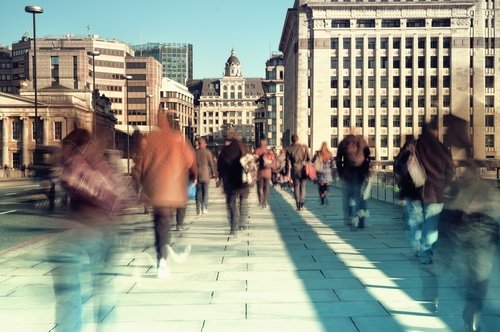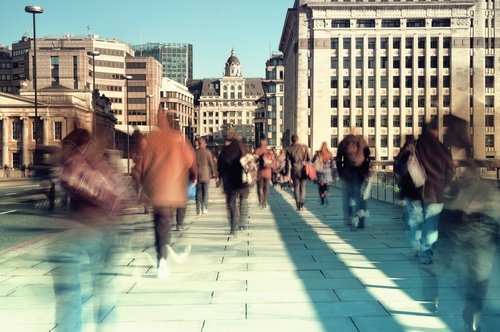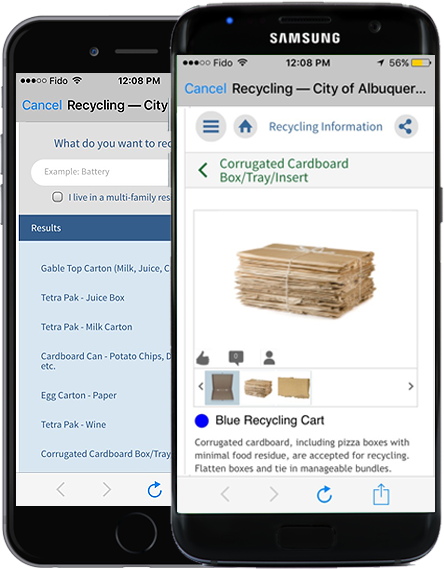Big City Recycling and Millennials

Increasing recycling rates by reaching Millenials
Large cities face unique challenges when it comes to recycling and waste management. Space is an obvious issue, as is the sheer volume of waste produced by residents and businesses on a daily basis. Housing density is also a factor: single-family home owners are typically much better at recycling and composting than apartment dwellers are, but cities are made up mostly of the latter.
D emographics also come into play. While rural areas have fewer people and tend to cater more toward families, children and seniors, cities are bustling with young professionals looking to establish themselves in careers, study at university or find their way in the world. According to a recent US census, urbanites tend to be younger, less likely to be married and more likely to live alone.
emographics also come into play. While rural areas have fewer people and tend to cater more toward families, children and seniors, cities are bustling with young professionals looking to establish themselves in careers, study at university or find their way in the world. According to a recent US census, urbanites tend to be younger, less likely to be married and more likely to live alone.
The good news is that the majority of city-dwellers fall in the Millennial age group, a demographic which is dedicated to social causes and driven by a can-do attitude and community spirit. So while there is a clear disconnect between Millennial beliefs and actual practice, this divide can be conquered.
Clearly, a strong communications and education program can go a long way toward achieving this goal; the Recycle Coach app was designed with this purpose in mind. Here are some success stories about recycling big city style:
Supporting Change in Waterloo (Ontario)
Like many large cities, Waterloo, Ontario (population 575,000) has a vibrant, diverse population. Two major universities in town help accentuate this diversity and help drive the average age of residents down to 37.6, well below the Canadian national average age of 40.6. Waterloo is also one of the major tech and startup hubs in the country, which drove them to become one of my-waste’s early adopters.
Being technologically advanced, the city has high expectations for its digital solutions, both at the city administration level and among residents. The city put the app to the test during a recent overhaul of its waste collection services. The campaign was a success, with the app playing an important communications role alongside normal marketing channels, such as radio, TV and newspaper PR and advertising.
Interestingly, Waterloo reported a noticeable spike in issues and questions coming into the office through the app. And while some of increase was expected as residents adjusted to the new system, the uptick appears to also be a reflection of increased awareness and engagement throughout the resident population. Overall, the city is happy to see more residents checking in to make sure they’re recycling properly, rather than guessing and getting it wrong or not recycling at all.
Digital Solutions | Practical Applications
Urban dwellers, Millennials in particular, live in a fast-paced world, bombarded by work and social pressures, time-constraints and a slew of voices competing for their attention. The my-waste app allows you to cut through the noise and reach residents where their attention lies: online and on their phones.
Here are some other ways the my-waste™ app can help increase your residents’ awareness, improve their knowledgebase and teach them to become the engaged, pro-active citizens you need them to be:
Connectivity:
Millennials are notorious for being extremely connected and highly mobile. They check their phones before they get out of bed, and they’ve been known to juggle as many as three mobile devices at a time. The my-waste app is easy to install and allows you to contact residents directly, wherever they are at the time, and it plugs seamlessly into your municipal website and Facebook pages.
Information at their fingertips:

Users can access our comprehensive What Goes Where? directory online or directly from their app, and each list is customized to match your specific program requirements. This means residents have immediate access to information telling them whether to toss or recycle an item on the spot, which leads to higher compliance rates and a self-educating population.
Time Savings and Affordability:
Two of the biggest problems facing city waste and recycling teams are cost and administrative resources. Education costs money. Communication programs can be prohibitively expensive. With the my-waste app, set up costs are minimal and communication expenses are virtually eliminated.
Need to send out a blanket announcement to your entire jurisdiction? Just plug the information into our dashboard, set the geographic area to all, and it’s done. Have a construction or logistics issue that only affects one street? Set your messaging audience accordingly, and you’re good to go. No fuss, no additional costs.
The Recycle Coach app was designed with city administrators in mind.